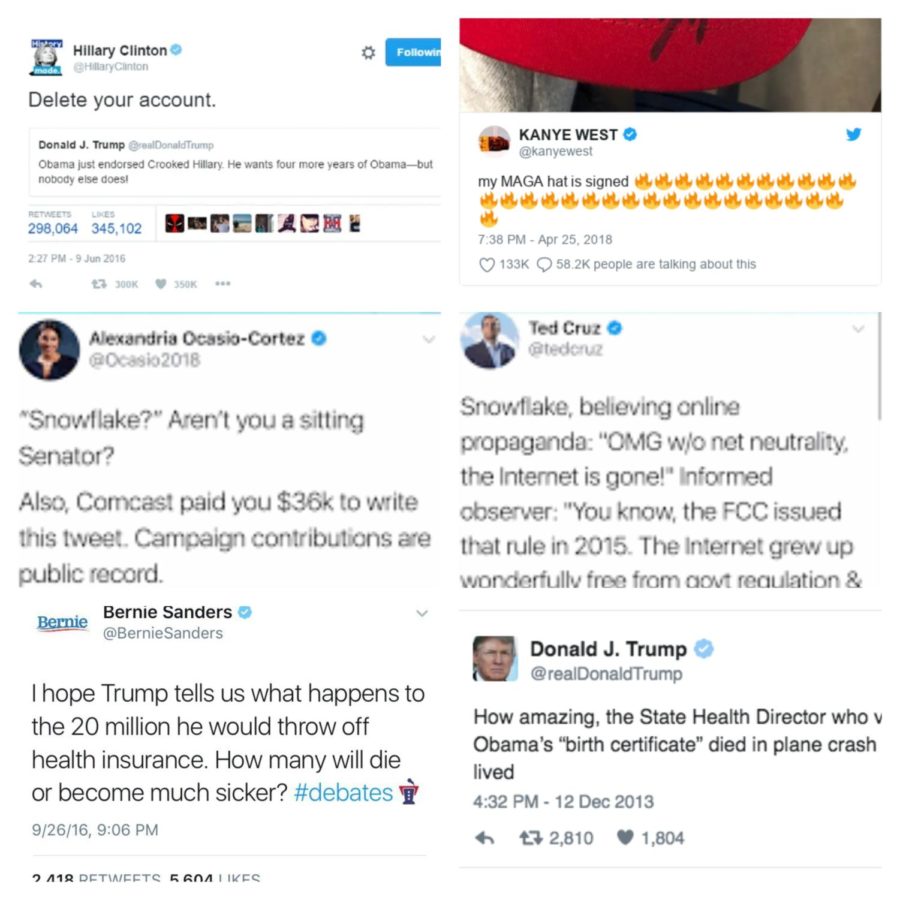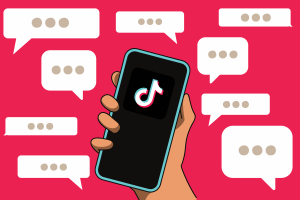Political tweets: divide and conquer?
Collage created by Lauren Teller
From Kanye West’s MAGA rant to Alexandria Ocasio-Cortez’s dispute with President Trump, Twitter is somewhat of a battleground for politics.
February 8, 2019
If you back the second amendment, then you are a Republican. If you support abortion rights, then you are a Democrat. If you had to Google the second amendment, or any other measure making an appearance in the news recently, then you probably are the average American youth; one whose political awareness never stretches outside of the discussion occuring on Twitter.
I have openly admitted my political beliefs simply as it comes up in casual conversation, not out of the desire to start one. As a result, I do not engage in online politics. I do not advertise my political beliefs because, frankly, I have little desire. They will not get likes, retweets or reposts, etc. I am not Alexandria Ocasio-Cortez, nor Kanye West. Of course, like anyone else who possesses the desire to keep up-to-date with current events, I only pay attention to the headlines. However, more than anything, I understand what I say will not change what my followers (the limited number that I possess) think. Social media politics is more a shouting match, rather than a debate. Ideally, the Internet could bring together a diverse group of people into a debate that would produce the most inclusive form of politics in American history. Teenagers in 2018 undeniably have more access to speak their own mind, and interact with the diverse opinions of others compared to young adults of a decade ago.
Anyone young, old, white, black, etc. could have access to political debates as long as they have access to the Internet- a basic modern necessity. The reality, however, is bickering from partisan lines and denouncement of the other side for the sake of a retweet or like. Most people use social media to enrich their own views, surrounding themselves with like-minded individuals, but never venturing out to seek information on the unknown. Findings from a Pew Research study show that the majority of Republicans and Democrats say that they have only a few or no friends from the opposite party.
The dividing nature of social media has contributed to the growth of the partisan divide. American youth are being brought up in this hostile “us vs. them” environment, and the tools they have been given to engage in society are what is causing that divide. It is teaching the wrong message, encouraging youth to be divided, to dislike Liberals or Conservatives, instead of growing to develop their own views and have confidence in American democracy. Teenagers need time to develop and generate their own perspective and, more importantly, grow as an individual. The most important lesson the current generation needs to learn is to be a person, not simply a Democrat or a Republican, and to engage in the debate we call politics.









